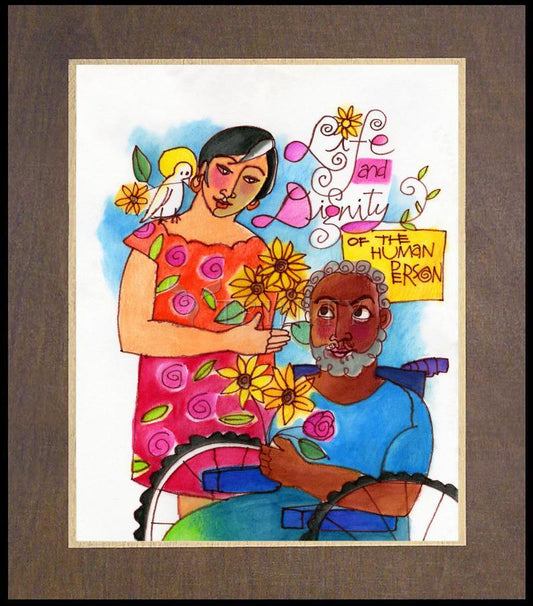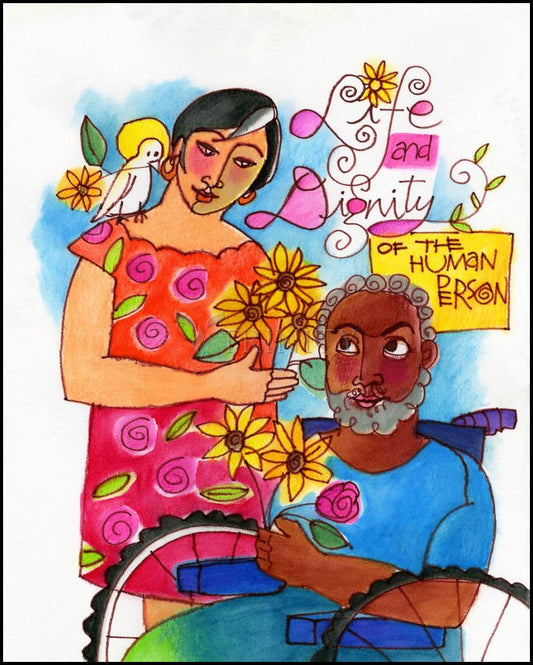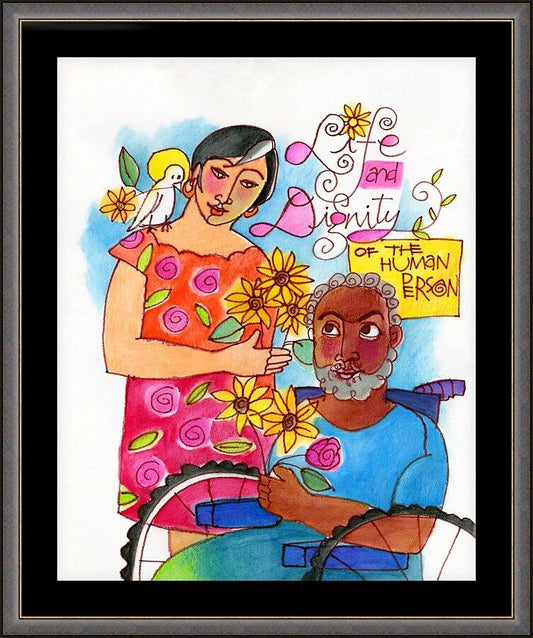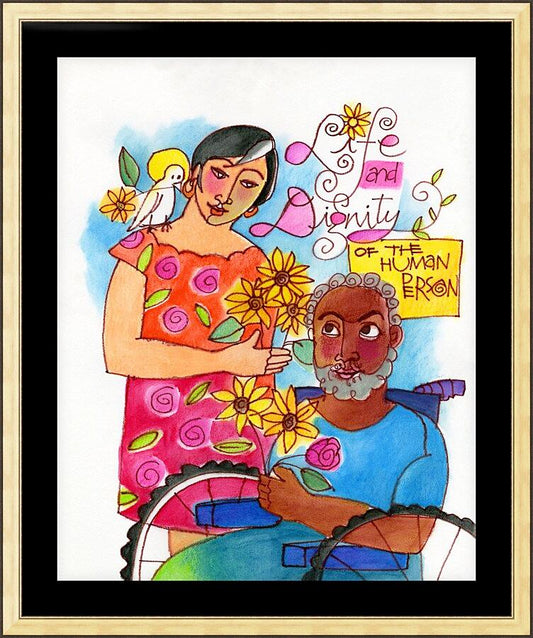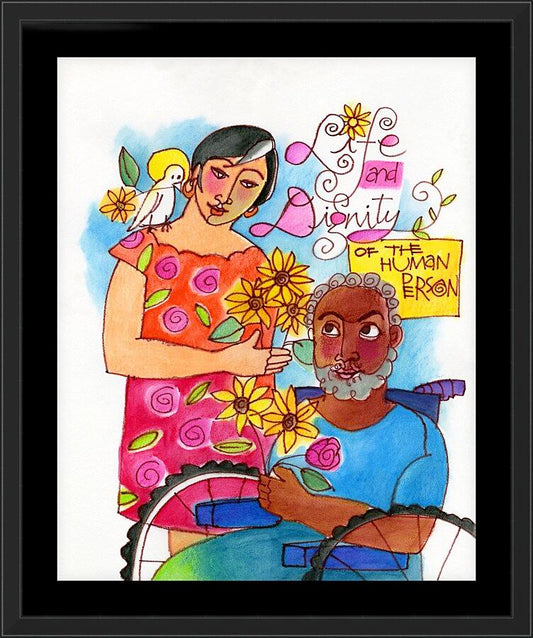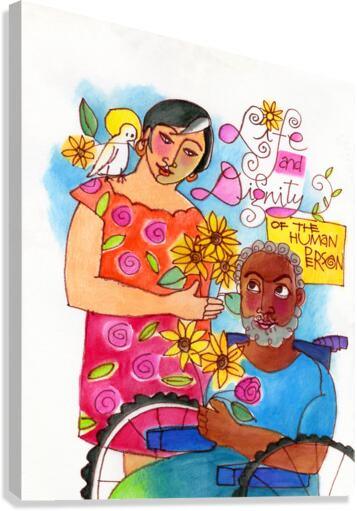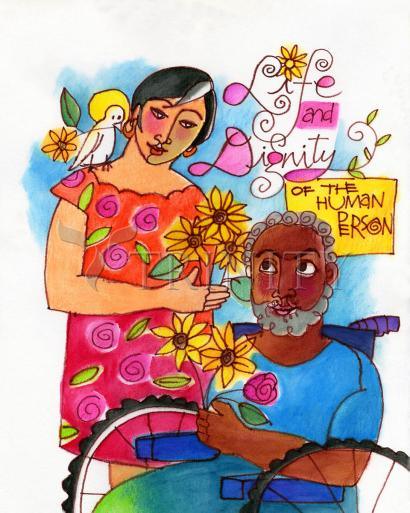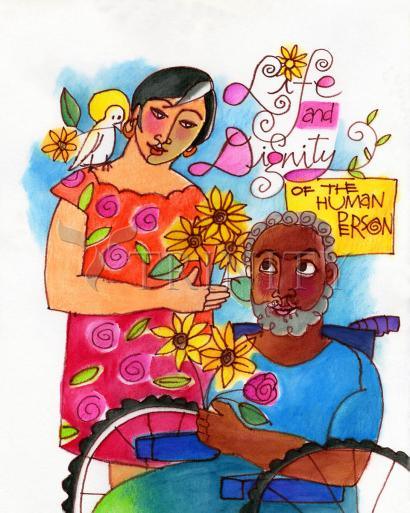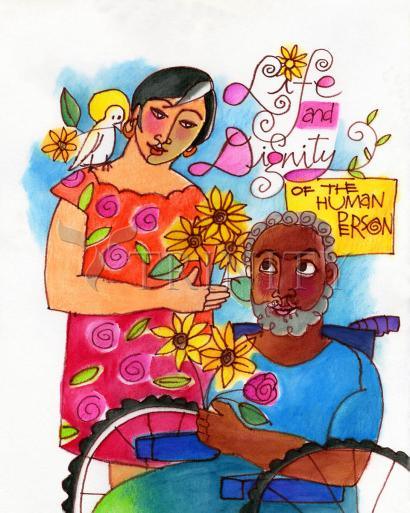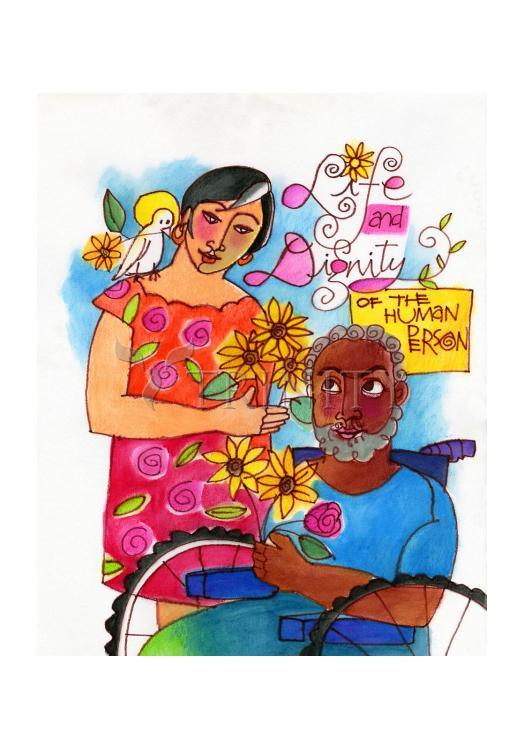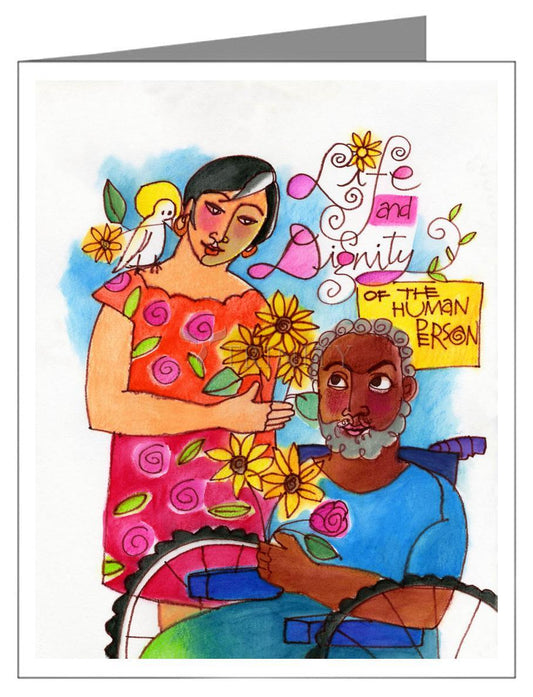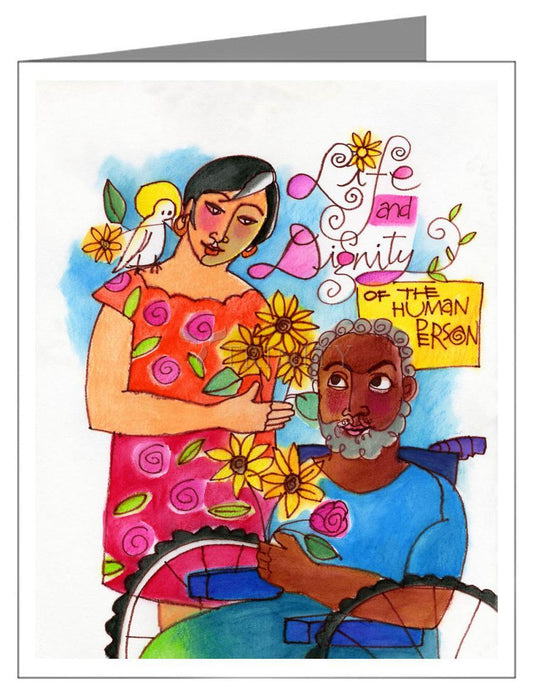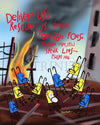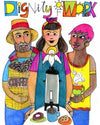The dignity of the individual and the demands of justice require, particularly today, that economic choices do not cause disparities in wealth to increase in an excessive and morally unacceptable manner.
Charity in Truth (Caritas in Veritate"), #32
Human persons are willed by God; they are imprinted with God's image. Their dignity does not come from the work they do, but from the persons they are.
On the Hundredth Year (Centesimus annus"), #11
The basis for all that the Church believes about the moral dimensions of economic life is its vision of the transcendent worth -- the sacredness -- of human beings. The dignity of the human person, realized in community with others, is the criterion against which all aspects of economic life must be measured.
All human beings, therefore, are ends to be served by the institutions that make up the economy, not means to be exploited for more narrowly defined goals. Human personhood must be respected with a reverence that is religious. When we deal with each other, we should do so with the sense of awe that arises in the presence of something holy and sacred. For that is what human beings are: we are created in the image of God (Gn 1:27). Economic Justice for All, #28
Every individual, precisely by reason of the mystery of the Word of God who was made flesh (cf. Jn 1:14), is entrusted to the maternal care of the Church. Therefore every threat to human dignity and life must necessarily be felt in the Church's very heart; it cannot but affect her at the core of her faith in the Redemptive Incarnation of the Son of God, and engage her in her mission of proclaiming the Gospel of life in all the world and to every creature (cf. Mk 16:15).
The Gospel of Life (Evangelium vitae"), #3
As explicitly formulated, the precept "You shall not kill" is strongly negative: it indicates the extreme limit which can never be exceeded. Implicitly, however, it encourages a positive attitude of absolute respect for life; it leads to the promotion of life and to progress along the way of a love which gives, receives and serves.
The Gospel of Life (Evangelium vitae"), #54
This teaching rests on one basic principle: individual human beings are the foundation, the cause and the end of every social institution. That is necessarily so, for men are by nature social beings.
Mother and Teacher (Mater et Magistra"), #219
There exist also sinful inequalities that affect millions of men and women. These are in open contradiction of the Gospel: Their equal dignity as persons demands that we strive for fairer and more humane conditions. Excessive economic and social disparity between individuals and peoples of the one human race is a source of scandal and militates against social justice, equity, human dignity, as well as social and international peace.
Catechism of the Catholic Church", #1938
Whatever insults human dignity, such as subhuman living conditions, arbitrary imprisonment, deportation, slavery, prostitution, the selling of women and children; as well as disgraceful working conditions, where men are treated as mere tools for profit, rather than as free and responsible persons; all these things and others of their like are infamies indeed. They poison human society, but they do more harm to those who practice them than those who suffer from the injury.
The Church in the Modern World (Gaudium et Spes"), #27
"Excerpts from United States Conference of Catholic Bishops



